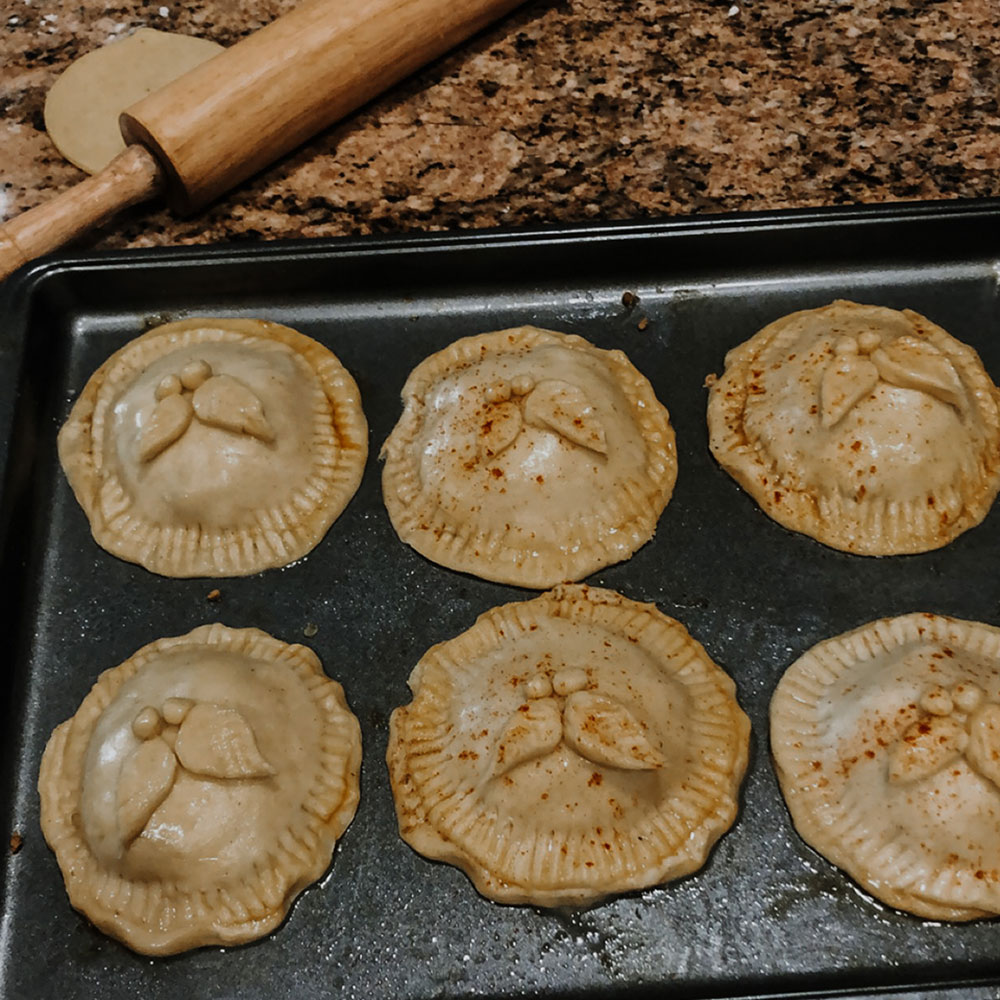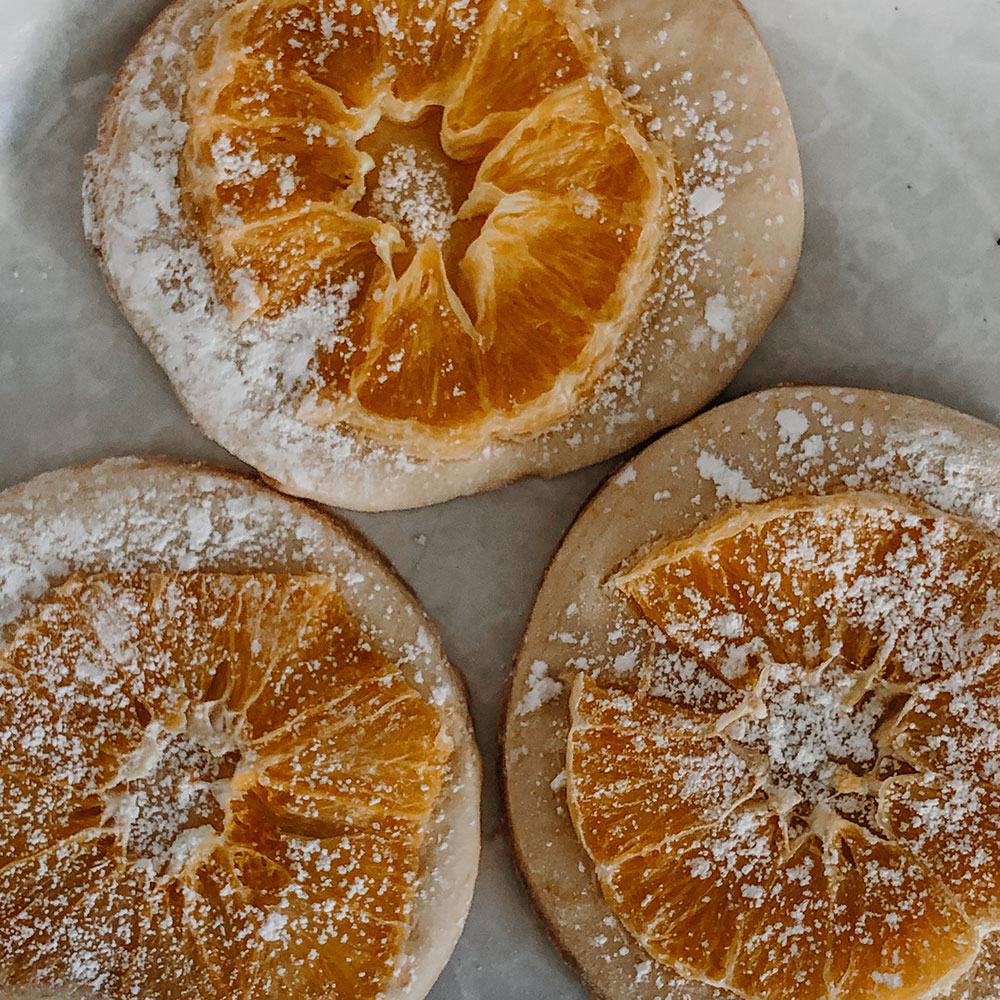Content Warning: Contains descriptions of eating disorders and self-harm.
I feel relatable and empowered when I reflect on coming out as bisexual. I felt understood and welcomed into the queer community – I felt loved. But, right alongside the joys of accepting my queerness, I was suffering from a mental illness pushed into secrecy. Coming out as a binge eater was nowhere near the same celebrated experience.
I was 8 years old when I went on my first diet.
My doctor ushered my mom out of the room, sat me down, and told me that I was overweight. I didn’t understand what it meant until I was sent to school with half sandwiches, low-fat snacks, and sugar-free gum. I ate low-calorie fitness brownies in elementary school next to my classmate’s neon birthday cupcakes. I purposely lost games in math class, because the winners got candy and I was afraid they would have to offer me something else.
I felt embarrassed to eat at the lunch table, so I made excuses about forgetting lunch or eating later. My parents jokingly shared stories about me raiding snack cabinets as a child, only to find their own fully stocked weeks later.
Suddenly, I understood my weight to equate to my worth. I thought about it every second of every day; there was not a day that I wasn’t conscious about sucking in my stomach or crossing my arms in front of my body.
The next time I sat at the doctor’s office, my mom was allowed to stay. I was praised for losing weight – but that was hardly the most important thing I lost.
I quickly learned two things that day. I could’ve never imagined as an 8-year-old kid that I’d spend the next decade trying desperately to unlearn them.
First, I learned that your size dictates how people treat you. I wish I could tell her that people would enjoy my presence, not solely my appearance.
Second, that people couldn’t judge my eating if they didn’t see it. I wish I could tell her that being alone so often would make everything harder.
From that moment on, I navigated the rest of my school years through cycles of low self-esteem. I went from being a confident bold child to a resentful anxious young adult. I struggled with making friends, communicating, and expressing myself in what felt like a genuine way. My days were exhausting, filled with excuses and a persona I played when I wasn’t alone.
Then, I came out as bisexual.
I was immediately isolated at my school. There were rumours spread on social media, constant whispers behind my back, and most of my friends slipped away unannounced. But – I also felt empowered. I found solace in online queer spaces; places that made me feel appreciated for who I was, ones that finally validated my identity. Finding a community where I could be authentic felt like a sigh of relief after years of suffocation.
It was a few months after I came out when the stress of university, family, and life caught up to me and I started to lean on food as comfort. It started as stopping for a takeaway on my way home once a week – my treat after years of depriving myself of it. Suddenly, it became multiple times a week and a source of comfort. I started eating alone, binge eating when I was stressed or overwhelmed, and thinking about food almost constantly.
While today I’ve overcome a lot of the urges I had from my eating disorder, I’ll never forget the feelings of guilt. I’d spend the day eating well, feeling accomplished and proud, only to come home and binge. The feelings of shame and disgust I felt towards myself, in that lowest era of my eating disorder, ultimately led to my breaking point. When COVID-19 hit, quarantine forced me to acknowledge that I was a binge eater.
I never could’ve imagined that a love for food would give me hope to overcome my eating disorder, but during the height of quarantine, it did just that. I spent an absurd amount of time journaling, which unveiled parts of myself I never knew. The overthinking and isolation turned into pages and pages about my goals, my life, and my struggles – a truthful depiction of me. Right alongside journaling, I also started to cook.
Ironically enough, as I made my way through Gordon Ramsay’s online cookbook (she was ambitious), my journals changed. My resentment towards food and my eating habits turned into an appreciation. I looked forward to preparing and eating my meals, even in company. I retaught my 8-year-old self that food could be a comfort in a healthy way. I started taking photos of my meals and journaling about my recovery.

It would be a lie to say that I haven’t had episodes of binge eating since then. Oftentimes my binge eater mindset returns when my stress level teeters on the line of overwhelming or randomly when I’m bored on a Sunday night. However, I’ve grown to be more patient with myself. I remind myself that I’m recovering and that my identity is valid regardless of my struggles with an eating disorder. Most importantly, though, I’m constantly leaning on my friends and community for support.
I’m proud to say that, now, I heal through food. It’s incredibly ironic that I genuinely love food – cooking, baking, experiencing meals with people I love, and trying new restaurants and food. It’s sad that for a decade I couldn’t let myself enjoy these things that have become my whole life. Every day, I’m healing the child who grew up isolated and invalidated and afraid to ask for help.

One of the things that I strive to speak on now is the invisibility that people with binge eating disorders experience. Growing up, when I had the courage to ask Google for help, I always ended up feeling even more alone amongst discussions of exclusively restrictive diets or EDs only affecting people with a certain body type.
Finally, however, I found online queer spaces where I made friendships with people who could empathize, understand, and listen to my struggles as a binge eater. It felt like I could finally tell my truth. I could chip away at the walls I built to hide from my own shame and guilt, and be vulnerable for the first time. There are distinct moments filled with overwhelming happiness that mark the beginning of my recovery, some that I will never forget.
I’ll always remember the joy of finishing my first recipe during quarantine and being able to enjoy it with my family. The queer friends who allowed me to “come out” as a binge eater for the first time still remind me that I owe them a homemade meal. Every time I look in the mirror, I’m reminded of the excitement younger me would feel if they saw what we’ve overcome.
Be honest with yourself, even when it feels impossible and uncomfortable. Remind yourself what you want, what you’re working towards. Recovery isn’t linear; I can only do my best for the punky, unique, and strong 8-year-old who’s finally able to regain some of her confidence.
If you have been affected by this story or are looking to reach out to someone for support or advice or just to talk, there are numerous services available for LGBTQ+ people, listed below, and many offer instant messaging support.
© 2022 GCN (Gay Community News). All rights reserved.
Support GCN
GCN is a free, vital resource for Ireland’s LGBTQ+ community since 1988.
GCN is a trading name of National LGBT Federation CLG, a registered charity - Charity Number: 20034580.
GCN relies on the generous support of the community and allies to sustain the crucial work that we do. Producing GCN is costly, and, in an industry which has been hugely impacted by rising costs, we need your support to help sustain and grow this vital resource.
Supporting GCN for as little as €1.99 per month will help us continue our work as Ireland’s free, independent LGBTQ+ media.
